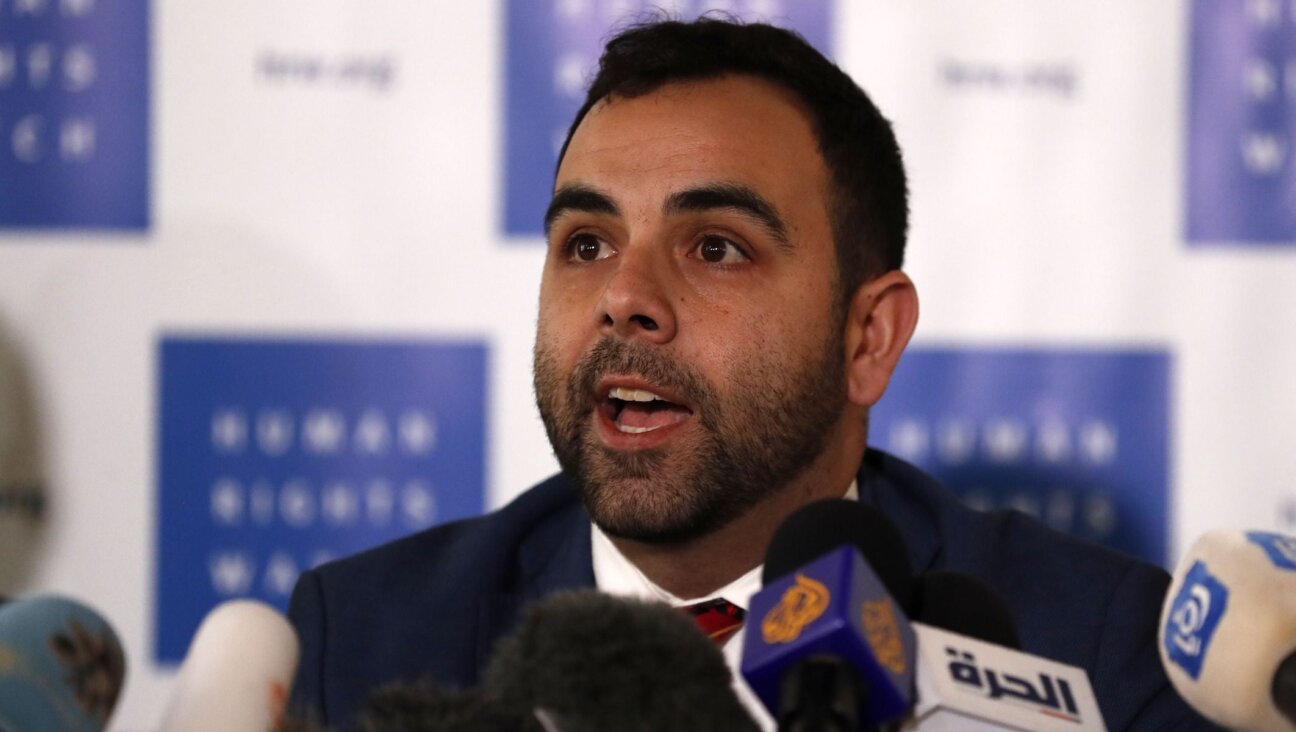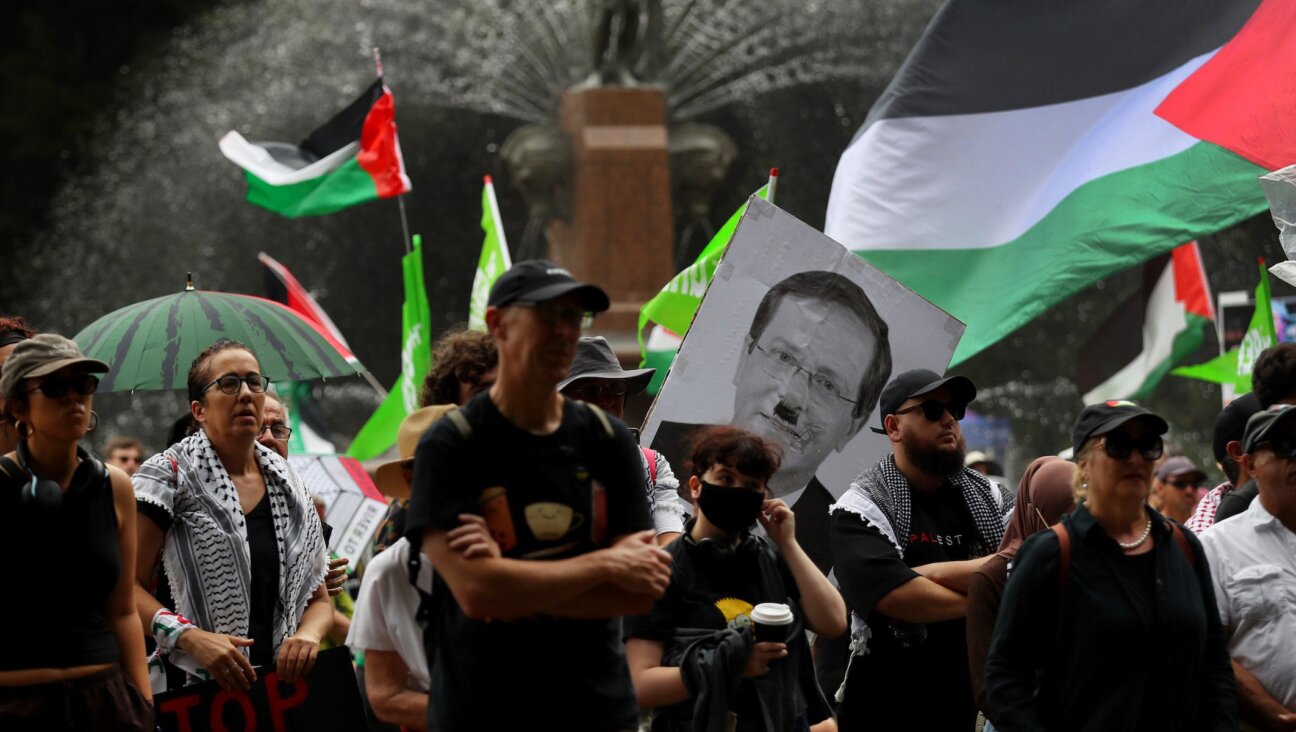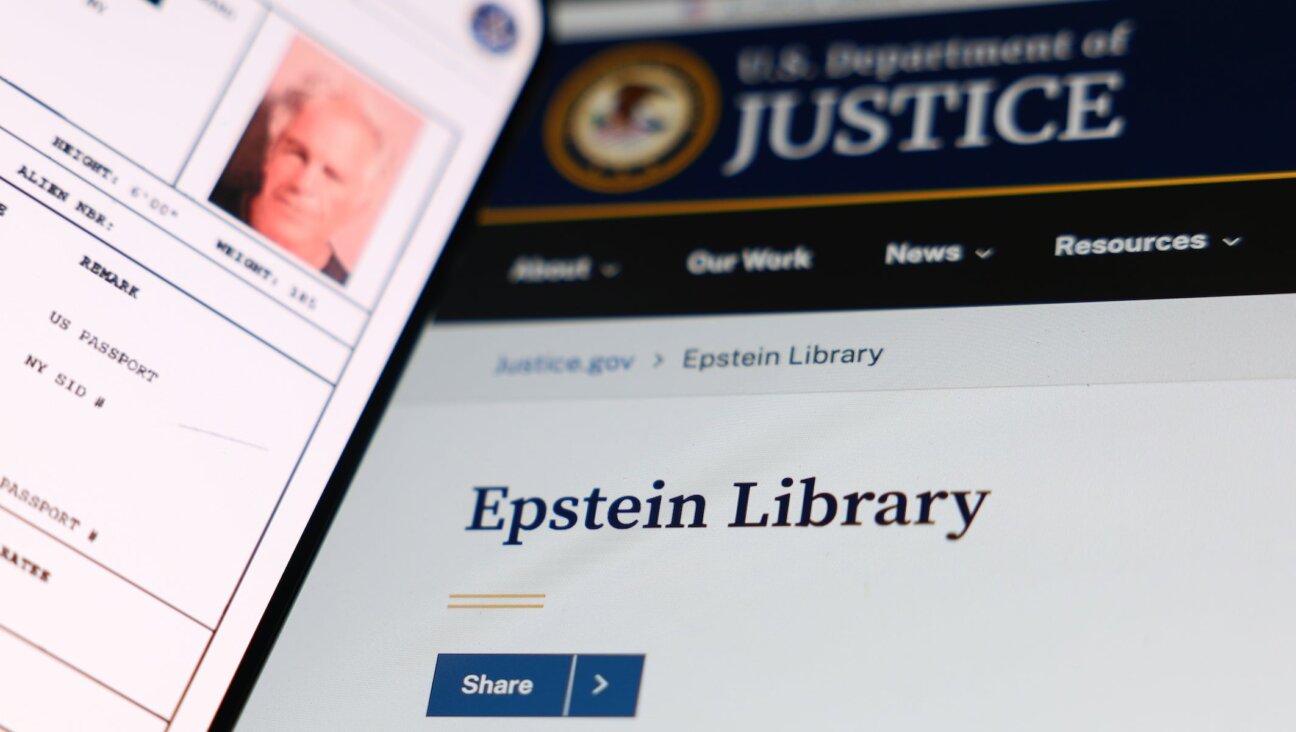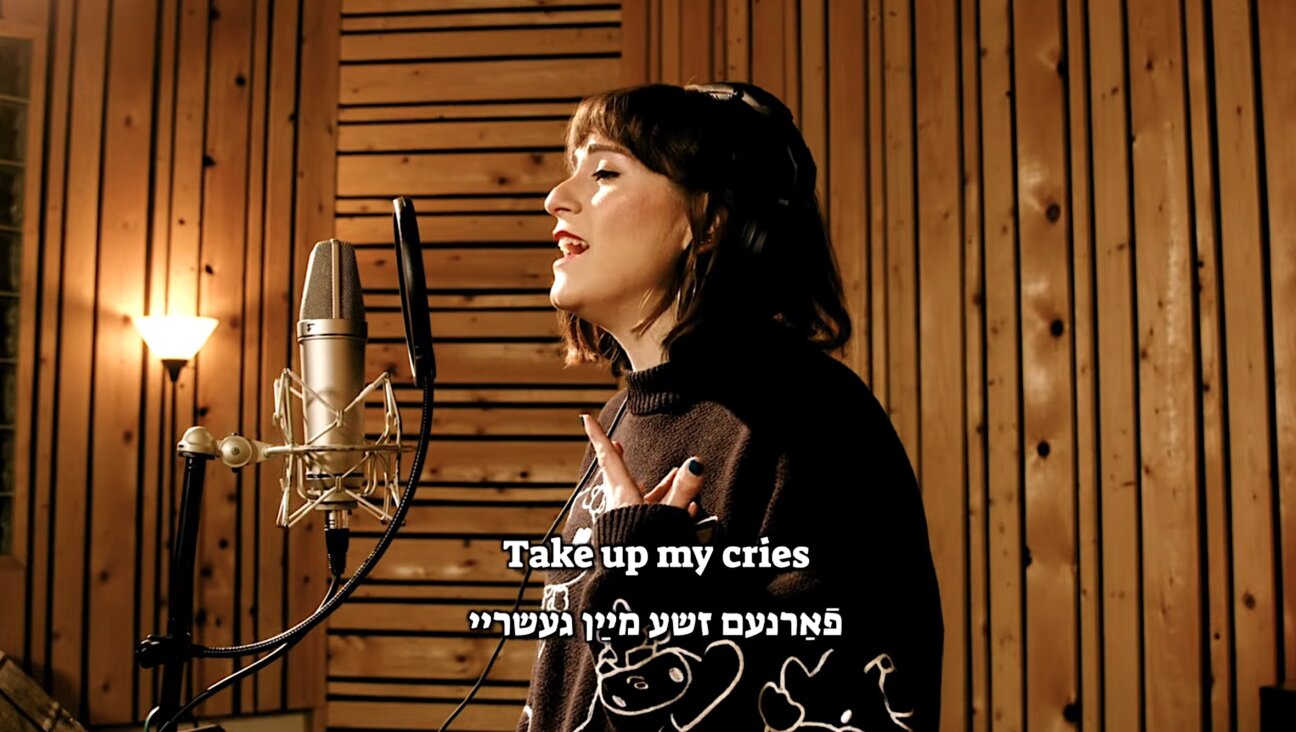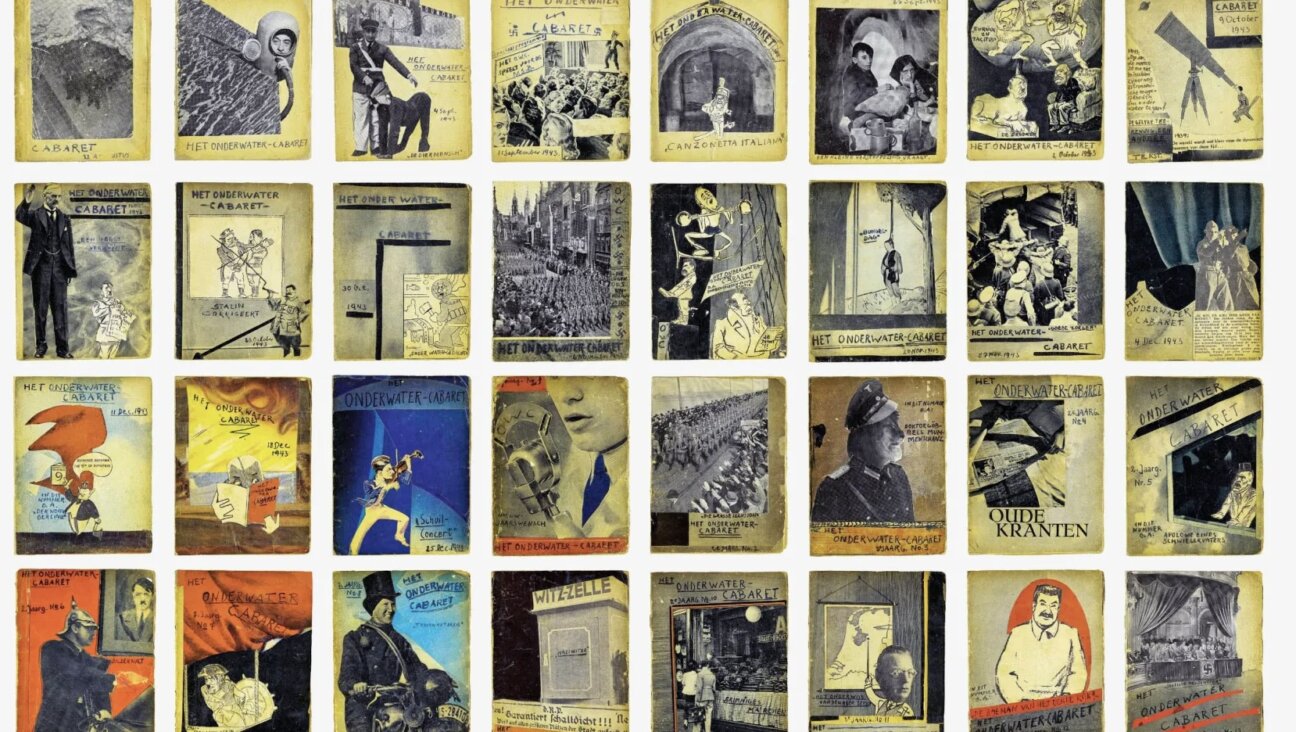7 Ukrainian teens will get a break from war at a Jewish sports camp in California this summer
Ramah Sports Academy in northern California will host six Ukrainian campers and one counselor during its July session
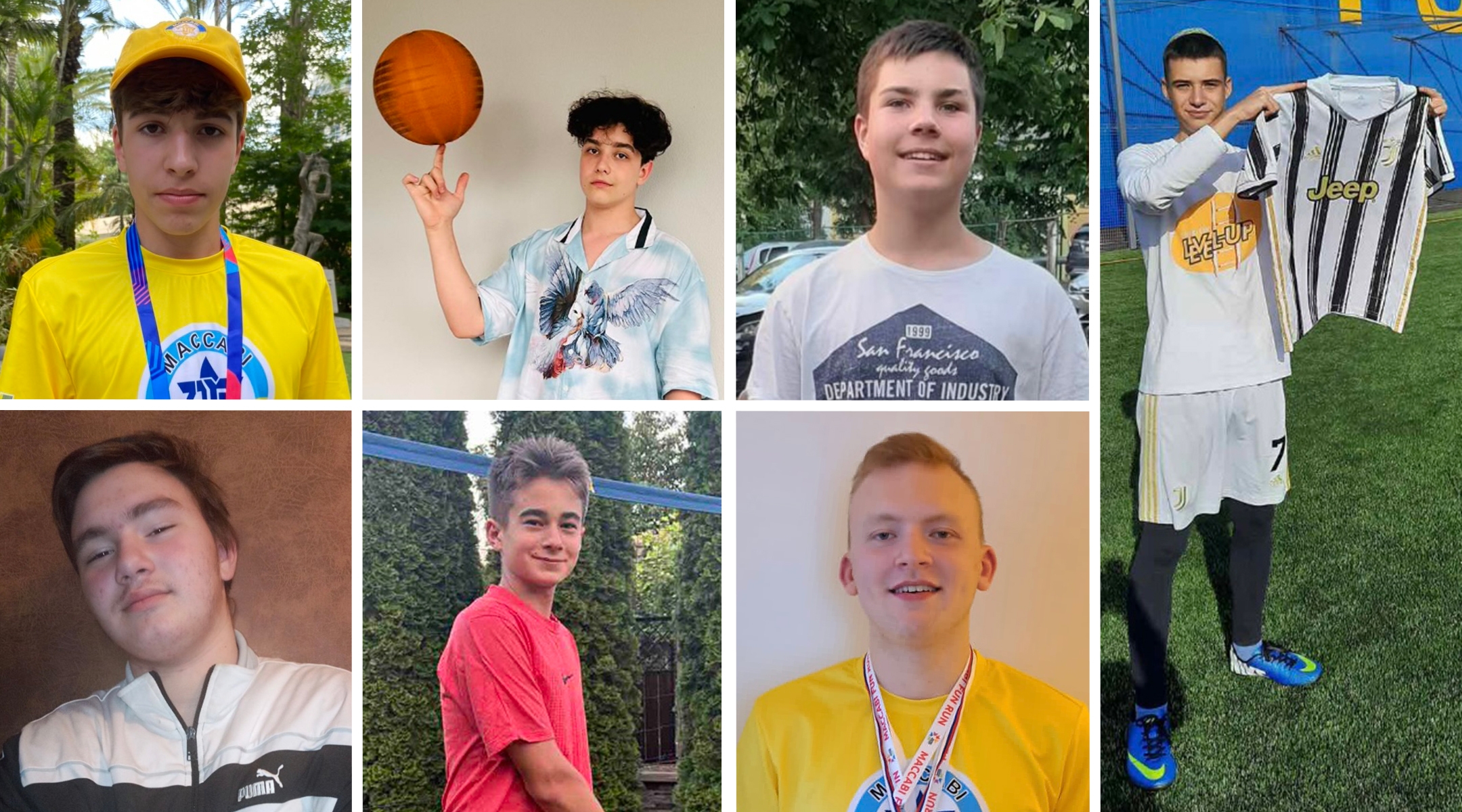
Clockwise from top left: Leonid Bereslavich, Mark Sagan, Alexey Kulik, Nikita Novitsky, Ilya Miroshnichenko, Veniamin Rudman and Artur Dotsenko (Courtesy of Makkabi Ukraine)
(JTA) — Almost a year and a half into Russia’s invasion of Ukraine, 13-year-old Artur Dotsenko has become accustomed to sleepless nights. With all the bombings and shellings in his hometown of Kyiv, Dotsenko said he gets about 2-3 hours of sleep each night.
For a few weeks this summer, Dotsenko will leave war-torn Ukraine for the Pacific coast, where he and six other Ukrainian teens will spend four weeks at Ramah Sports Academy, the Jewish sports camp operated by Ramah of Northern California.
The trip was orchestrated by Maccabi USA, the American arm of the Maccabi World Union, the Jewish sports organization that puts on the Maccabiah Games in Israel.
After the war broke out last year, Arnie Fielkow, the former head of New Orleans’ Jewish federation and now a vice president at Maccabi USA, approached Maccabi’s CEO, Marshall Einhorn, to suggest ways the organization could support Ukrainian Jewry.
One of his ideas was to partner with the Ramah system to offer a Jewish summer camp experience to Ukrainian teens.
“This initiative is really important to me personally and professionally, and to my entire family,” said Fielkow, who adopted two daughters from Ukraine in 2007. “The Ukrainian people are fighting so courageously, and it’s important as Amerians that we do everything we can to help.”
Fielkow said “it took literally one phone call” with Amy Skopp Cooper, the Ramah system’s national director, to put the wheels in motion. The sports camp, which opened five years ago in Connecticut, announced earlier this year that it was moving to California and joining forces with Ramah of Northern California.
“We’re excited about the opportunity to bring together high-level athletes from Jewish communities all over the world, and we are hopeful that a few weeks on the shores of the Pacific Ocean will be enjoyable for these campers who have survived circumstances unimaginable to many of our campers,” Alex Rubin, Ramah Sports Academy’s assistant director, said in a Maccabi USA statement announcing the partnership.
The teens range from 13 to 17 years old, plus an 18-year old counselor who will be accompanying them. Fielkow held a fundraiser in New Orleans to raise money to cover travel expenses, and he said Ramah was waiving their camp tuition.
“For these children, who mainly are now in Ukraine, it’s really a good opportunity to have a good rest, to see another country, to speak with teens the same age as they are,” said Galina Pechaiko, who lives in Kyiv and serves as Makkabi Ukraine’s deputy director.
During a group Zoom with JTA, several of the teens shared their experiences during the 16-month war, and what they’re looking forward to during their time at camp — which for many of them included working on their English, relaxing and playing sports.
Ilya Miroshnichenko, 18, will be the group’s counselor. He’s originally from Kharkov, and has been living in Bratislava, Slovakia, with his parents for the past year. Miroshnichenko studied at a Jewish school in Ukraine, and has been involved in the Makkabi organization.
Miroshnichenko recalled being home alone when the war broke out in February 2022. His parents were on a trip, so his relatives came to be with him. Of the many ways life changed with Russia’s invasion, one stood out to him: how difficult it became to get groceries.
Nikita Novitsky is also from Kharkov, where he spent four years studying at a yeshiva. Novitsky, 17, said he and his family left Kharkov because of the destruction at the city’s center. He’s been living in Budapest, Hungary, for a year, while taking online classes from Kharkov.
“I want to get new experiences and meet new people,” Novitsky told JTA about the upcoming camp experience. “I want to improve my English and sports life. In my mind, it will be a good experience, this program.”
Novitsky runs, swims and plays soccer. He said he hopes to improve his form while at camp.
Many of the teens already have deep Makkabi connections. Leonid Bereslavich, a 15-year-old from Zaporozhye, participated in the Maccabiah Games last summer in Israel. Alexey Kulik, 13, is the son of the chairman of the Makkabi chapter in Nikolaev. And Dotsenko said his parents, who are involved in humanitarian aid efforts, met at a Makkabi seminar.
According to Einhorn, Makkabi Ukraine is also partnering with the JCC Association of North America to send delegations to the JCC Maccabi Games in Israel in July, and to Fort Lauderdale, Florida, in August.
As the teens prepare to fly to San Francisco next week, Pechaiko said she is still shocked they pulled it off.
The U.S. embassy in Kyiv is not currently providing consular support, so Pechaiko said they had to get visas for the teens through the embassy in Bratislava. And they are flying out of Vienna, with a layover in Frankfurt.
“It’s proof that one Jew can help another one,” Pechaiko said. “We’re not even talking about the time when we are happy, it’s also when we have a big problem, a war. We have got a helping hand from Maccabi USA in this situation.”
This article originally appeared on JTA.org.

